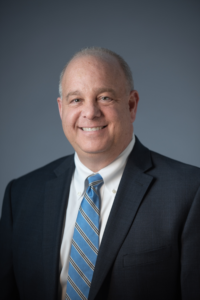As part of one of the largest providers of hospice care services in the US, the medical professionals at Capital Caring Health have been helping patients and their loved ones grapple with grief for over 45 years.
One thing we’ve learned in all that time is that everyone experiences grief in their own unique way. Some people cry. Some people get angry. Some people don’t say anything at all. When it’s your partner that’s in mourning, it isn’t always easy to know the right way to help them in their time of need.
At Capital Caring Health, we always try to be there for anyone who needs our help. If you’re wondering how to support your partner with grief, here are some things to keep in mind…
4 Tips for Helping Your Partner Deal with Grief
Don’t Just Talk, Listen
When someone we care about is sad, it’s often tempting to try to fill every silence with words of love and support. Although reminding your partner how important they are to you and how valid their feelings are is certainly necessary, it’s also important to let them do the talking sometimes, even if what they have to say isn’t as positive or optimistic as you’d like.
Don’t dismiss or devalue your partner’s feelings; instead, reaffirm their value and give them permission to grieve. Make sure they know that it’s okay for them to not be okay. Finally, get comfortable with the quiet. They won’t always be willing or able to talk, and that’s okay, too.
Give Them Space
Like silence, sometimes being left alone is what a person needs most of all. Obviously, this is easier said than done. If your partner is in a state of emotional turmoil, you want to be by their side as much as possible. You want to hold them close and keep them safe.
When mourning, not everyone responds to such close attention. Even people who normally relish spending time with their loved ones might need some “me time.” If you’re not sure when you should be doting and when you should make yourself scarce, don’t be afraid to ask. Assure them that they won’t hurt your feelings by asking to be alone, then do your best to accommodate them.
Pick Up the Slack
Sometimes when people are mourning, they throw themselves into their work or their chores. It allows them to focus their emotional energies in a productive way and also serves as an occasional distraction to keep them from dwelling on negative emotions.
Not everyone is like that, however. In fact, many people find it difficult to concentrate even on simple, everyday tasks like doing the laundry, washing the dishes, or even cooking their own meals. This is a natural part of the grieving process. Do what you can to pick up the slack for the time being.
Don’t Let Them Wallow
As crucial as it is that your partner has time and permission to grieve, there are times when someone who is hurting can get lost in that hurt. They wallow in their grief and obsess over it. This is normal in the beginning, but if it continues for weeks or even months, it will inevitably take a toll on your partner’s life and mental health.
After the initial shock of loss has passed, gradually begin encouraging your partner to get out of the house, to stay active, or to do things that they enjoy. Don’t be pushy; it’s okay to take “no” for an answer. But be persistent. Don’t stop encouraging them.
Get Professional Grief Support at Capital Caring Health
At Capital Caring Health, we know that helping someone deal with their grief can be almost as difficult as dealing with grief yourself. That’s why we’re proud to offer free professional grief support and counseling services to anyone and everyone, even those who have never used any of our services before.
Neither you nor your loved ones need to have been a patient of Capital Caring Health in the past to utilize our one-on-one counseling or support group services. To learn more about these and other Capital Caring Health services, contact us today.
Whatever you need, we’re here to help.


 Kathleen Ramkaran, RN, CCM
Kathleen Ramkaran, RN, CCM Hali Gantumur
Hali Gantumur Yasmin
Yasmin  Jennifer Olsen GNP-BC
Jennifer Olsen GNP-BC Dr. Cheryl-Lynne McCalla, DO
Dr. Cheryl-Lynne McCalla, DO Meena Raj, MD,
Meena Raj, MD,  Catherine McGrady, RN, MSN, is Vice President, Clinical Programs at Capital Caring Health. In this role she is responsible for the development, implementation, and monitoring of clinical programs in support of high-quality patient-centered care delivery across the continuum of services. Catherine also manages external partnerships including Capital Caring Health’s participation in ACOs and other value-based clinical programs
Catherine McGrady, RN, MSN, is Vice President, Clinical Programs at Capital Caring Health. In this role she is responsible for the development, implementation, and monitoring of clinical programs in support of high-quality patient-centered care delivery across the continuum of services. Catherine also manages external partnerships including Capital Caring Health’s participation in ACOs and other value-based clinical programs Catherine Kravolec
Catherine Kravolec Sherri Parker
Sherri Parker Anne Young
Anne Young Odessa Simpson
Odessa Simpson Hope Collazo
Hope Collazo LaWanda Middleton
LaWanda Middleton Sally Hughes
Sally Hughes Jennifer Godwin
Jennifer Godwin Henry Fuller
Henry Fuller Margaret Doherty
Margaret Doherty Evan Kirschner
Evan Kirschner Gabby True
Gabby True Carla Thompson
Carla Thompson Shannon Collier
Shannon Collier Annette Lindsay
Annette Lindsay Jason Sobel, MD
Jason Sobel, MD Brenan Nierman
Brenan Nierman Susan Roberts
Susan Roberts Jackie Gouline
Jackie Gouline Stacy Brown
Stacy Brown Kremena Bikov
Kremena Bikov


 Audrey Easaw
Audrey Easaw
 Julia Feldman
Julia Feldman Gus has been a part of the Capital Caring Health family for nearly fifteen years. Ten of those years have been in leadership, working with colleagues and co-workers to achieve the best in their ability while promoting CCH core values. Gus has a background in nursing and a lifelong passion for technology. In each position at CCH, Gus has found ways to integrate technology to enhance outcomes and job satisfaction.
Gus has been a part of the Capital Caring Health family for nearly fifteen years. Ten of those years have been in leadership, working with colleagues and co-workers to achieve the best in their ability while promoting CCH core values. Gus has a background in nursing and a lifelong passion for technology. In each position at CCH, Gus has found ways to integrate technology to enhance outcomes and job satisfaction. Pat Bishop
Pat Bishop Elizabeth Ariemma
Elizabeth Ariemma Joe Murray
Joe Murray

 Lin Maurano
Lin Maurano Dwayne Barton, NP
Dwayne Barton, NP Jacob Phillips, MD
Jacob Phillips, MD Tabitha Gingerich, NP
Tabitha Gingerich, NP Donna Smith
Donna Smith Paulette Davidson, Chaplain
Paulette Davidson, Chaplain Colleen Carberry, RN Case Manager
Colleen Carberry, RN Case Manager Sherri Parker, Team Leader Medical Social Worker
Sherri Parker, Team Leader Medical Social Worker Steven Skobel’s Story
Steven Skobel’s Story Marrygold Ugorji’s Story
Marrygold Ugorji’s Story Sulaiman Bangura’s Story
Sulaiman Bangura’s Story Neil Parker’s Story
Neil Parker’s Story Michael Toohig’s Story
Michael Toohig’s Story Liberating Europe
Liberating Europe Hershell Foster
Hershell Foster Hank Willner, M.D.
Hank Willner, M.D. Laura Branker
Laura Branker Jason Parsons
Jason Parsons Altonia Garrett
Altonia Garrett
 Kieran Shah
Kieran Shah Mandy Brouillard
Mandy Brouillard
 Sherri Parker
Sherri Parker Sayaka Hanada
Sayaka Hanada Caitlin Geary
Caitlin Geary Heidi Young
Heidi Young Linda Biedrzycki
Linda Biedrzycki Heidi Young, M.D.
Heidi Young, M.D. Jason Sobel, M.D.
Jason Sobel, M.D. Anne Silao-Solomon, M.D.
Anne Silao-Solomon, M.D.

 Mohammad Saleem, M.D.
Mohammad Saleem, M.D. Maleeha Ruhi, M.D.
Maleeha Ruhi, M.D. Christopher Pile, M.D.
Christopher Pile, M.D. Cameron Muir, M.D.
Cameron Muir, M.D. Fellowship
Fellowship John McCue, D.O.
John McCue, D.O. Peyman Mamdouhi, D.O.
Peyman Mamdouhi, D.O. Adam Knudson, M.D.
Adam Knudson, M.D. Amanda Keerbs, M.D.
Amanda Keerbs, M.D. Matthew Irwin, M.D., M.S.W.
Matthew Irwin, M.D., M.S.W. Alan Goldblatt, M.D.
Alan Goldblatt, M.D. Jennifer Gerhard, D.O.
Jennifer Gerhard, D.O. Ray Jay Garcia, M.D.
Ray Jay Garcia, M.D. Tamara Barnes, M.D.
Tamara Barnes, M.D. Petros
Petros  Shaz Anwar, D.O.
Shaz Anwar, D.O. Lee-Anne West, M.D.
Lee-Anne West, M.D.
 Melissa McClean, N.P.
Melissa McClean, N.P. Michael Byas-Smith, M.D.
Michael Byas-Smith, M.D. Nancy Cook
Nancy Cook Kimberly Grove
Kimberly Grove Steve Cone
Steve Cone Eric De Jonge, M.D.
Eric De Jonge, M.D. David Schwind
David Schwind Vivian Hsia-Davis
Vivian Hsia-Davis Cameron Muir, M.D.
Cameron Muir, M.D. Keith Everett
Keith Everett Susan Boris
Susan Boris Carolyn Richar
Carolyn Richar Matt Kestenbaum
Matt Kestenbaum